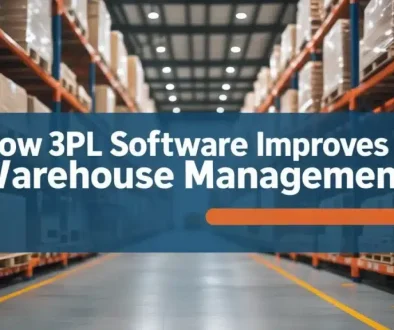5 Ways Technology is Transforming Fleet Management in 2025
Introduction
Fleet management is evolving rapidly as technology becomes the central driving force. In 2025, businesses are embracing intelligent systems that optimize efficiency, sustainability, and compliance. From predictive analytics to electric vehicles, innovation is reshaping the future of transportation. Many solutions, such as iHub Logistics are leading this technological shift across industries.
AI and Predictive Analytics
Artificial Intelligence (AI) and predictive analytics have moved beyond buzzwords. In fleet management, they are now critical tools for reducing downtime and maximizing operational efficiency. Predictive maintenance systems monitor vehicle health indicators to foresee issues before they become critical, helping fleets reduce maintenance costs by up to 30%, according to Deloitte’s 2024 Fleet Insights Report.
AI also revolutionizes route optimization by analyzing traffic patterns, weather forecasts, and delivery timelines to suggest the most fuel-efficient paths. Fleet managers now rely on real-time AI insights to minimize delays and cut operational costs significantly.
IoT and Connected Vehicles
The Internet of Things (IoT) has enhanced fleet transparency like never before. Connected vehicles constantly transmit vital data—location, engine diagnostics, driver behavior—which enables real-time decision-making.
These insights improve safety by identifying risky driving behaviors and allowing targeted training interventions. Additionally, IoT solutions facilitate real-time fleet tracking, providing immediate updates on vehicle status, improving delivery accuracy, and ensuring better customer satisfaction.
According to a 2025 Telematics Forecast, companies adopting IoT-based monitoring saw a 25% improvement in delivery punctuality and a 15% drop in insurance premiums due to safer driving practices.
Electric and Autonomous Vehicles
Electric vehicles (EVs) and autonomous vehicles (AVs) are becoming key players in modern fleet strategies. With governments offering incentives and tighter regulations on emissions, EV adoption among fleet operators is rising sharply. Industry data predicts that by 2026, nearly 40% of light-duty fleet vehicles will be electric.
Autonomous technology, although still maturing, is beginning to impact logistics. Pilot programs show AVs significantly reduce operational costs and optimize last-mile delivery. However, fleets must address challenges like infrastructure upgrades, cybersecurity, and evolving legislation.
Companies preparing now by investing in flexible management platforms will be well-positioned to integrate EVs and AVs as they scale.
Cloud-Based Fleet Management Systems
Cloud technology is no longer optional—it’s foundational for fleet operations in 2025. Cloud-based fleet management systems offer centralized control, real-time data accessibility, and seamless scalability across regions and departments.
Such systems allow fleet managers to monitor vehicles, generate compliance reports, optimize dispatches, and communicate with drivers remotely. According to Gartner’s Logistics Trends Report, fleets utilizing cloud systems experience a 20% improvement in operational efficiency and a 30% faster response to disruptions.
Integration with other enterprise tools (finance, HR, customer service) also becomes more fluid, enabling smarter decision-making and resource allocation across the entire business.
Compliance and Regulatory Tech Tools
Regulatory requirements are tightening across the logistics industry, making compliance technology more critical than ever. Automated compliance tools handle electronic logging, driver certification tracking, vehicle inspection reminders, and real-time regulatory updates.
By automating these tasks, companies reduce the risk of penalties and enhance transparency with both regulators and clients. As fleet operators increasingly face global and regional compliance challenges, investing in these technologies ensures smoother operations and protects brand reputation.
The future of compliance lies not just in meeting standards but exceeding them to build trust with partners and customers.
Conclusion: The Road Ahead
Technology is reshaping fleet management faster than ever before. Embracing AI, IoT, EVs, cloud platforms, and compliance automation isn’t just smart—it’s necessary for survival in an increasingly competitive environment. Businesses that act now will be the ones leading the logistics world of tomorrow.
By integrating advanced technologies early—through platforms like Fleet Complete, Verizon Connect, and others—fleet operators can create more efficient, resilient, and sustainable logistics operations. 2025 is just the beginning of this new, smarter era of fleet management.



